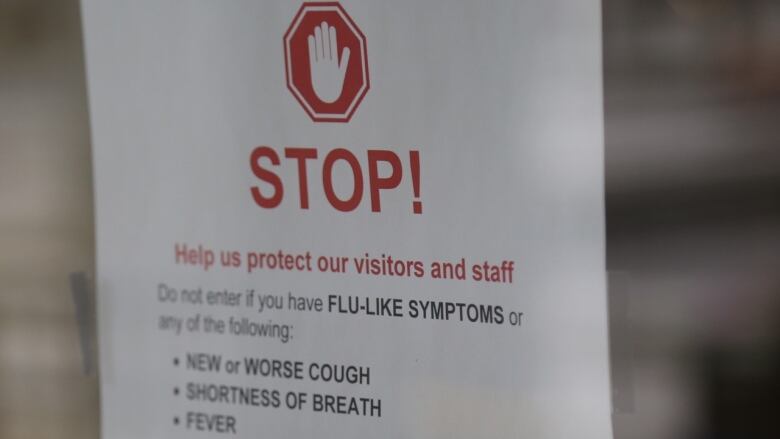More than half of smaller businesses weren't following COVID-19 rules during blitz, city says
Big box stores more compliant than smaller ones, say city staff

A recent provincial blitz of smaller businesses in Hamilton found that only 48 per centof them were following COVID-19 rules, according to the city.
Paul Johnson, the city's general manager of healthy and safe communities, said adherence to public health rules was "not at the level we would hope for." A previous blitz, Johnson said, found big box stores were actually more compliant.
"[It] points again to the need for us to continue to be vigilant around those restrictions," he said.
The Ministry of Labour says inspectors were in Hamilton on Jan. 30 and 31. They visited 163 businesses and issued 19 tickets. The most common violations were failure to have adequate screening, lack of safety plans, and not following masking requirements.
Big box stores were around 75 per cent compliant
Ken Leendertse, director of licensing and bylaw services with the city, said the businesses included some larger stores, but mostly smaller ones like variety stores and smoke shops.
The numbers were shared inWednesday's general issues committee meeting. He said the ministry also issued 18 orders and laid 41 warnings in Hamilton this past weekend.
During the first blitz two weeks ago, businesses were around the 75 per cent compliance rate, Leendertse said.
"I think we found the big box stores much more compliant," he said, though he noted fewerstores were inspected."The big box stores are getting it right."
The ministry visited only 39 workplaces in the big box blitz, and found 11 with violations. They issued five tickets.
The ministry has not answeredCBC News' inquires about what those tickets were for and why the names of the box stores wouldn't be disclosed.
Johnson said that now is the time to be "as close to 100 per centas is humanly possible" when it comes to following the safety protocols in place to combat the spread of the virus.
The ministry said thereare no further blitzes scheduled in Hamilton at this time.
Coun. Brenda Johnson (Ward 11) also raised the question of whether the city has discussed portioning off the non-essential areas of big box stores to make it a "level playing field" for the smaller businesses.
Johnson said the concern continues, but there's been no movement on changing the order.
Niagara, Halton blitzes
There was also a big box blitz in Niagara on Jan. 23 and 24, the ministry said. Inspectors visited 140 businesses and issued 27 tickets. The most common violations were also related to screening, safety plans and masking.
Inspectors are currently in Haltonfor a blitz running fromFeb. 2 to Feb. 5.
"Stopping the spread of COVID-19 has always been a community effort. While businesses continue to do their part to protect workers and customers, we all need to take individual action by following public health measures when out in public," said Halton Region medical officer of health, Dr. Hamidah Meghani, in a media release.
"If you need to visit a store for essential goods and services, please wear a mask and keep your distance. It can be that simple."
The ministry said data from more than 36,000 COVID-19 related inspections shows that the majority of businesses in Ontario are following COVID-19 safety requirements.
According to a media release, more than 300 officers are visiting workplaces that are allowed to be open during the provincial shutdown, such as certain retail establishments, restaurants providing take-out meals, essential service-sector establishments (such as gas stations) and farming operations.












_(720p).jpg)


 OFFICIAL HD MUSIC VIDEO.jpg)
.jpg)



























































































